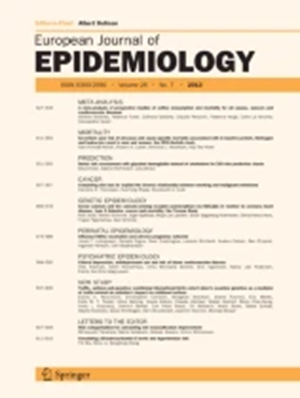Is educational attainment protective against developing dementia? A twin study of genetic and environmental contributions.
IF 5.9
1区 医学
Q1 PUBLIC, ENVIRONMENTAL & OCCUPATIONAL HEALTH
引用次数: 0
Abstract
Low educational attainment is recognized as a modifiable risk factor for dementia. Despite the commonly accepted notion that greater educational attainment confers lower dementia risk, few family-based studies have investigated the causal bases for the association. Using data from seven twin samples from Sweden, Denmark, Australia, and the US participating in the IGEMS (Interplay of Genes and Environment in Multiple Studies) consortium (N = 60,027, 10.92% with dementia), we tested whether twins who achieve higher education than their co-twins have lower risk of dementia. The primary analysis applied a multilevel between-within regression framework, supported by descriptive statistics of within-pair differences. Results confirmed an overall association between educational attainment and dementia risk, such that individuals with higher educational attainment had less likelihood of developing dementia (phenotypic regression coefficient = -0.68, p <.0001). Within twin pairs, however, twins who achieved greater education than their co-twins did not uniformly show lower dementia risk (within-family regression coefficient = -0.07, p =.0983, while between-family regression coefficient = -0.98, p <.0001). Taken together, the pattern of results shows that the effect of educational attainment on dementia risk is largely attributable to genetic influences in common to educational attainment and dementia, although there are also contributions from environmental influences shared between members of the same family. Results were similar in men and women. These findings add to the literature by using a co-twin control design to address possible reasons that low educational attainment is associated with greater dementia risk.受教育程度能预防痴呆吗?基因和环境作用的双胞胎研究。
低受教育程度被认为是痴呆症的一个可改变的危险因素。尽管人们普遍认为受教育程度越高患痴呆症的风险越低,但很少有基于家庭的研究调查了这种联系的因果基础。使用来自瑞典、丹麦、澳大利亚和美国参与IGEMS(基因与环境在多重研究中的相互作用)联盟的7个双胞胎样本的数据(N = 6027, 10.92%患有痴呆症),我们测试了接受高等教育的双胞胎是否比其孪生兄弟患痴呆症的风险更低。初步分析采用多水平内-间回归框架,并辅以对内差异的描述性统计。结果证实了受教育程度与痴呆风险之间的整体关联,即受教育程度较高的个体患痴呆的可能性较小(表型回归系数= -0.68,p < 0.0001)。然而,在双胞胎中,受教育程度比同卵双胞胎高的双胞胎并不总是表现出更低的痴呆风险(家庭内回归系数= -0.07,p =)。家族间回归系数= -0.98,p < 0.0001)。综上所述,结果模式表明,受教育程度对痴呆症风险的影响主要归因于受教育程度和痴呆症共同的遗传影响,尽管同一家庭成员之间共享的环境影响也有贡献。男性和女性的结果相似。这些发现通过使用双胎对照设计来解决低教育程度与更高痴呆风险相关的可能原因,从而为文献提供了补充。
本文章由计算机程序翻译,如有差异,请以英文原文为准。
求助全文
约1分钟内获得全文
求助全文
来源期刊

European Journal of Epidemiology
医学-公共卫生、环境卫生与职业卫生
CiteScore
21.40
自引率
1.50%
发文量
109
审稿时长
6-12 weeks
期刊介绍:
The European Journal of Epidemiology, established in 1985, is a peer-reviewed publication that provides a platform for discussions on epidemiology in its broadest sense. It covers various aspects of epidemiologic research and statistical methods. The journal facilitates communication between researchers, educators, and practitioners in epidemiology, including those in clinical and community medicine. Contributions from diverse fields such as public health, preventive medicine, clinical medicine, health economics, and computational biology and data science, in relation to health and disease, are encouraged. While accepting submissions from all over the world, the journal particularly emphasizes European topics relevant to epidemiology. The published articles consist of empirical research findings, developments in methodology, and opinion pieces.
 求助内容:
求助内容: 应助结果提醒方式:
应助结果提醒方式:


